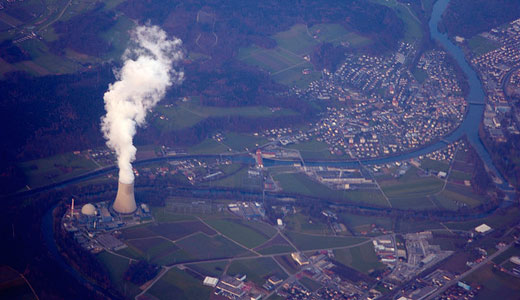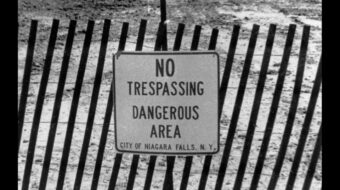
Last week was bleak for public health and the environment: Gregory Jaczko, who has presided as chairman of the U.S. Nuclear Regulatory Commission since the Fukushima Daiichi reactor disaster began in March 2011, has resigned. Dr. Jaczko, alone among his fellow Commissioners, has insisted no new nuclear power plant should be licensed unless and until the operator has committed to making safety upgrades needed to protect against the risk of severe accidents such as occurred at Fukushima. His resignation throws into question whether the NRC will have the fortitude to complete advances commenced under his leadership.
As attorneys who represent environmental groups, civic groups, and neighbors of proposed nuclear power plants in NRC licensing cases, we have watched the NRC’s response to the Fukushima Daiichi accident with concern. From the outset of the accident, Dr. Jaczko took actions that were unpopular with the nuclear industry and his fellow Commissioners but showed a strong commitment to protecting public health and safety. In the first hours of the accident, he prudently recommended the evacuation of all U.S. citizens living within 50 miles of Fukushima, even though U.S. regulations call for evacuation within only 10 miles. His judgment later proved sound.
After the NRC appointed a high-level task force to study implications of the Fukushima accident for the regulation of U.S. reactors, Dr. Jaczko exercised his authority as chairman to ensure that the task force could conduct its review independently, without interference by fellow commissioners or non-task-force staff members. As a result, the task force issued a forceful report that called on the agency to make safety upgrades that had been delayed since the post-Three Mile Island safety review 30 years before. Under Dr. Jaczko’s leadership, the agency adopted many of the task force’s recommendations for improvements to the NRC’s regulatory system for providing a basic level of protection to public health, safety and the environment.
Recently, when the commission was presented with requests for approval of new reactor licenses at the Vogtle site in Georgia and the Summer site in South Carolina, Chairman Jaczko asserted construction and operation of new reactors should not be allowed unless their licenses incorporated firm commitments to implement the Task Force recommendations for post-Fukushima safety upgrades. He was overridden by his fellow commissioners. The new reactors were licensed and are now under construction. As Dr. Jaczko stated in his dissent from the licensing decision, postponing implementation of safety upgrades until after reactor licensing is fraught with difficulty and uncertainty. Once construction is under way or completed, future commissioners may lack the resolve to order expensive design changes that require the ripping out of completed reactor parts. And without Dr. Jaczko, the commission could lack even a dissenting voice.
Although the NRC is an independent federal agency, it has earned the reputation of being “captive” to the nuclear industry. Congress rarely nominates to the commission any individual who lacks industry approval. And it is commonplace for commissioners to land comfortable industry jobs after leaving the agency. In the Fukushima Daiichi disaster, we saw the devastating consequences of such a cozy relationship between the Japanese regulatory agency and the industry it oversees when the government complacently ignored explicit warnings about the seismic risks to the Fukushima reactors. Here, the effectiveness of the NRC’s continuing response to the Fukushima accident could be seriously set back by the loss of Dr. Jaczko’s independent and outspoken advocacy for the prompt and effective adoption of Fukushima-related reforms.
We have a chance to look at the Fukushima disaster, be humbled and learn. Having delayed adoption of safety reforms that were proposed 30 years ago after the Three Mile Island accident, we cannot afford to postpone them any longer.
The Obama administration has nominated a promising candidate for that task, Allison Macfarlane. Dr. Macfarlane, a geologist, has shown she is willing to take unpopular but principled positions by opposing the Yucca Mountain Repository on scientific grounds. She has also co-authored a ground-breaking study on the public health and environmental risks of pool storage of spent reactor fuel. She wisely advocates deep disposal rather than reprocessing of spent fuel on economic and nonproliferation grounds. And she has promoted public participation in the deliberations of the President’s Blue Ribbon Commission on the future of nuclear power in the U.S. She should be appointed chair if she demonstrates a commitment to protecting public safety on a par with Gregory Jaczko.
Diane Curran is an attorney in Washington, D.C. who for 30 years has represented citizen and environmental groups in NRC licensing and enforcement cases. Mindy Goldstein is director of the Turner Environmental Law Clinic at Emory University Law School. They represent nine civic and environmental organizations in a court appeal of the NRC’s decision to license the new Vogtle reactors. This article was distributed by American Forum. It previously appeared in The Hill. © American Forum Photo: Bill Liao // CC 2.0

MOST POPULAR TODAY

Zionist organizations leading campaign to stop ceasefire resolutions in D.C. area

High Court essentially bans demonstrations, freedom of assembly in Deep South

UN warns that Israel is still blocking humanitarian aid to Gaza

U.S. imperialism’s ‘ironclad’ support for Israel increases fascist danger at home







Comments